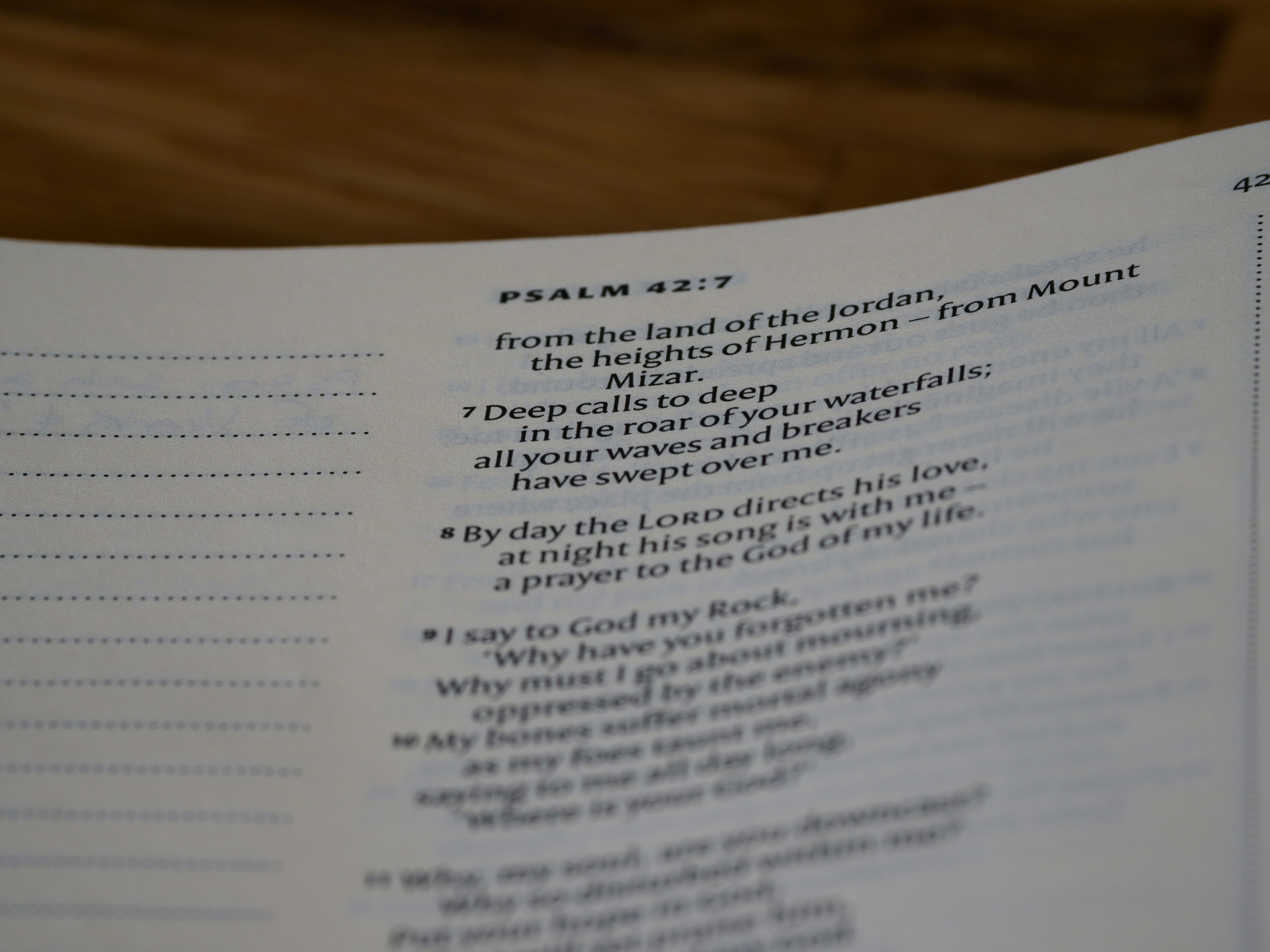
Understanding Bible Reflection
Bible reflection is a vital practice for believers seeking a deeper connection with God and His teachings. At its core, Bible reflection involves contemplating and meditating on the scriptures, allowing individuals to internalize the messages contained within them. This process not only enhances one’s understanding of God’s word but also nurtures a personal relationship with Him. The importance of Bible reflection cannot be overstated; it is a means through which believers can gain spiritual insight and guidance relevant to their daily lives.
One key aspect of Bible reflection is the practice of meditation. This practice encourages individuals to silence distractions and focus on specific verses or passages, contemplating their meanings and implications. By doing so, believers can uncover deeper truths that may not be immediately apparent. Prayer also plays a crucial role in this process. Inviting God’s presence into a time of reflection ensures that individuals are receptive to His voice and guidance. Through prayer, they can express their thoughts and concerns, seeking wisdom that can be derived from God’s teachings.
Moreover, journaling can be an effective tool for Bible reflection. Writing down thoughts, prayers, and insights can help individuals articulate their understanding and record their spiritual journey. This practice allows believers to track their growth over time and revisit previous reflections, deepening their engagement with God’s word. Ultimately, the importance of Bible reflection lies in its capacity to transform an individual’s spiritual life. By incorporating practices such as meditation, prayer, and journaling into their routines, believers can invite transformation and clarity into their understanding of scripture. These methods not only deepen one’s faith but also enhance overall spiritual well-being, making Bible reflection an essential component of a vibrant Christian life.
Hearing God’s Voice Through Scripture
Engaging in regular Bible reflection is a profound practice that allows individuals to discern God’s voice amid the cacophony of daily life. The importance of Bible reflection cannot be overstated, as it serves not only as a spiritual exercise but also as a vital tool for personal decision-making and guidance. Scriptures act as a roadmap, providing wisdom and clarity that can guide believers through challenges and uncertainties. When individuals immerse themselves in biblical texts, they often find that specific passages resonate deeply with their current situations, illuminating the way forward.
For instance, consider the story of a young professional facing a career crossroads. After spending time in reflection over relevant scriptural passages, they encountered Proverbs 3:5-6, which emphasizes the importance of trusting God with one’s path. Through this reflective process, they felt reassured to pursue a path that aligned with their values and convictions, revealing the transformative power of engaging thoughtfully with Scripture. Such personal testimonies serve as proof of how Bible reflection can facilitate a clearer understanding of God’s direction in our lives.
Additionally, Bible reflection fosters discernment by inviting practitioners to meditate on specific verses that speak to their circumstances. This practice can lead to moments of profound insight, where individuals feel a confirmation or a sense of peace in the decisions they are contemplating. The more one reflects on the scriptures, the more familiar they become with the patterns of divine guidance. Thus, the importance of Bible reflection lies not only in the act of reading but in the deep, interactive dialogue it creates between the individual and God. This dynamic exchange nurtures a closer relationship with God, ensuring that one is well-equipped to hear His voice and navigate the complexities of everyday life.
The Benefits of Daily Reflection
Engaging in daily Bible reflection can profoundly impact an individual’s spiritual and emotional well-being. One prominent benefit of this practice is the potential for spiritual growth. By consistently reflecting on biblical passages, individuals can deepen their understanding of their faith and develop a closer relationship with God. This engagement leads to enrichment of spiritual life and facilitates the internalization of biblical teachings, fostering a greater sense of purpose.
Beyond spiritual enlightenment, daily Bible reflection contributes to enhanced emotional well-being. With the complexities of modern life, individuals often encounter stress and uncertainty. Regularly engaging with scripture can provide solace, offering comfort and hope during challenging times. Psychologists have noted that spiritual practices, including Bible reflection, can contribute positively to mental health. For example, a study published in the American Journal of Psychiatry found that individuals who engage in spiritual practices tend to experience lower levels of anxiety and depression. This suggests that maintaining a routine of reflection can act as a buffer against negative emotional states.
Moreover, the practice of daily Bible reflection can cultivate a stronger faith. As individuals reflect upon their lives in conjunction with biblical teachings, they often find clarity in their purpose and direction. This journey encourages self-examination and personal growth, leading to a richer, more fulfilling life. The act of contemplating scripture enables one to better navigate life’s challenges by providing insights that promote resilience.
Incorporating daily Bible reflection fosters increased peace, clarity, and an overall sense of well-being. As believers take the time to meditate on scriptures, they often find that these biblical messages resonate deeply, allowing them to align their thoughts and actions with their spiritual values. Consistent engagement with the Bible thus becomes not only a tool for spiritual nourishment but also a pathway to a more harmonious life.
Getting Started with Bible Reflection
Embarking on a journey of Bible reflection can be a profound way to deepen one’s spiritual life and foster a stronger connection with God. To initiate this practice, it is essential to establish a routine that accommodates your personal lifestyle, ensuring a dedicated time and space for reflection. Choosing a consistent time, whether early in the morning, during lunch breaks, or before bed, allows an individual to cultivate a habit that integrates seamlessly into daily life.
Selecting a comfortable and quiet location is equally important. This could be in a cozy corner of your home, a favorite park bench, or your place of worship. A serene environment can enhance focus and tranquility, making the act of Bible reflection more meaningful. Furthermore, choosing specific passages or themes from the Bible can streamline your reflection process. Beginners may start by focusing on the Gospels or passages that resonate personally, gradually expanding to other books of the Bible as familiarity grows.
Setting personal goals can provide direction and motivation for your Bible reflection. These goals may include objectives like reading a certain number of verses, journaling insights, or memorizing key scripture. As you progress, consider utilizing various resources to enrich your study, such as Bible study tools, devotionals, or mobile apps that offer daily scripture prompts. Joining community groups or reflection circles can further enhance your experience, as sharing insights with others fosters accountability and communal growth.
As you commit to this spiritual discipline, remember that the importance of Bible reflection lies not only in understanding scripture but also in the personal transformation it brings. Engaging regularly with God’s Word opens avenues for divine communication, allowing you to hear and discern His voice in everyday life. Embrace this opportunity to deepen your connection with God, understanding that your reflective journey can bring profound insights and experiences.

